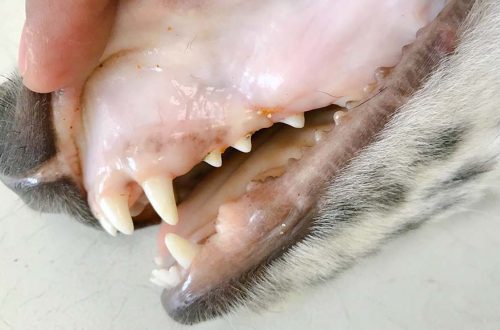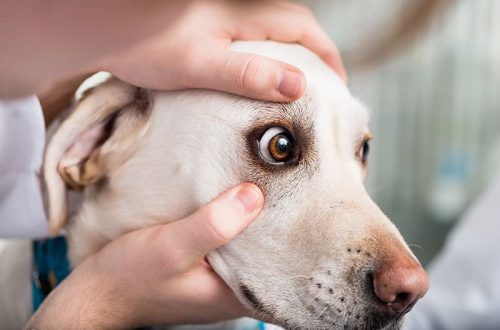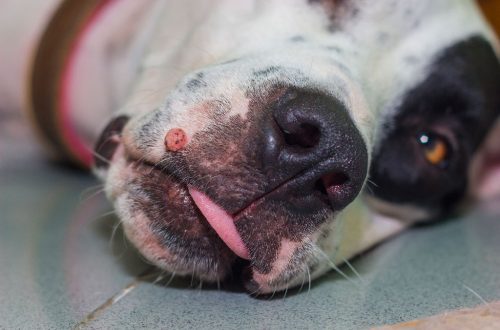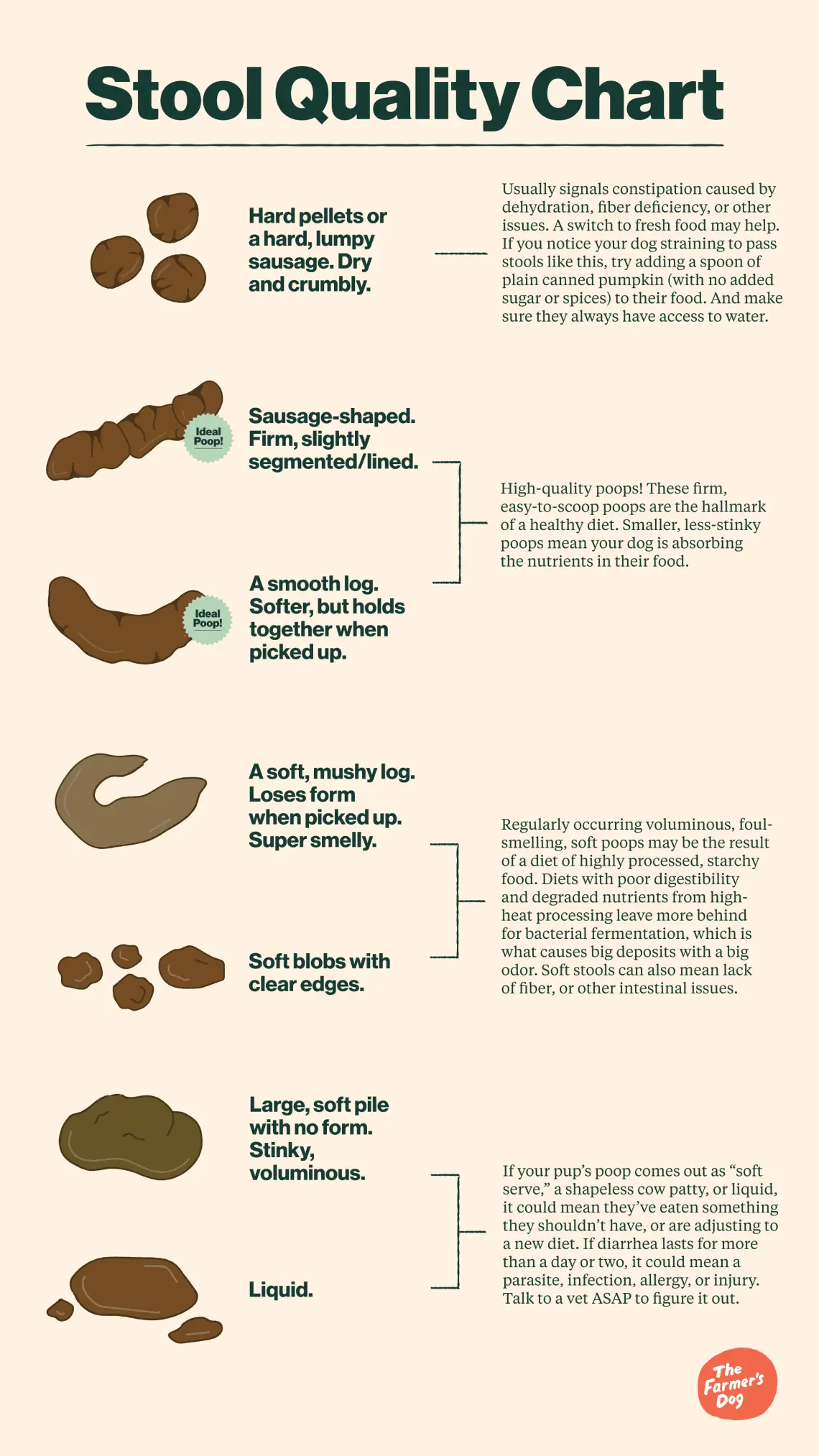
Black feces in a dog – causes and treatment
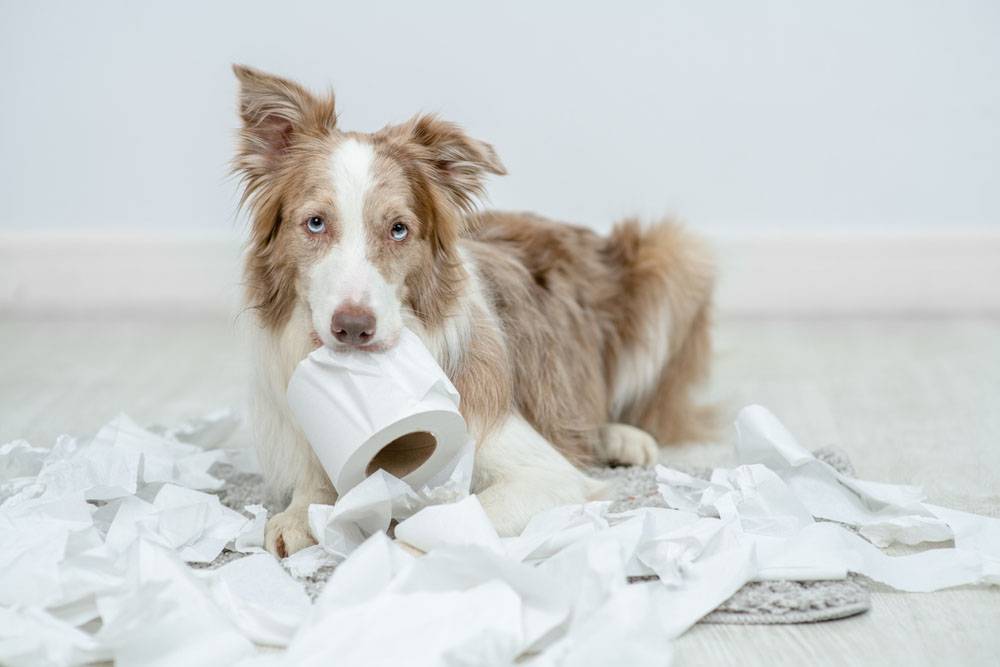
Contents
6 causes of black stool in dogs
Black stool in dogs usually results from bleeding in the upper gastrointestinal (GI) tract. The dark color and tarry consistency of the stool indicates the digestion of blood as it passes through the intestinal tract. It can also happen if your dog has swallowed a significant amount of blood from the respiratory tract, such as if she coughed and swallowed blood from her lungs or had a nosebleed. The main symptom of melena is black feces that look like tar or coffee grounds. Because there are many different causes for melena, the symptoms will vary depending on the underlying condition.
Here are some common signs:
Black tar-like feces
Diarrhea
Vomiting (vomiting blood)
Pale mucous membranes
Bruises on the body
Refusal to eat
Weight loss
Thirst.
Let’s look at several reasons for changing the color of the stool.
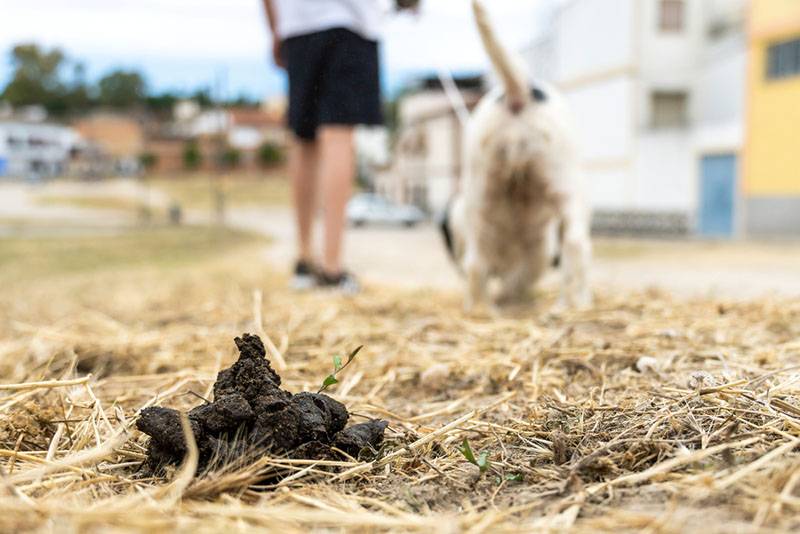
Injury
A common cause of black stools in dogs is gastrointestinal trauma. Perhaps your pet has a gastrointestinal injury from swallowing a sharp object: a twig, part of a toy, or something else. This can puncture, scrape the GI tract or intestinal wall, and cause bleeding that appears as dark stools.
If you suspect your dog has ingested something spicy that has resulted in dark-colored feces, contact your veterinarian. The last thing you should do is ignore dark feces for a few days. Better safe than sorry, call your vet.
infectious agents
Several infectious agents can lead to black feces caused by internal bleeding. Infectious agents such as parasites, bacterial, viral or fungal infections can severely injure the walls of the intestine or stomach and cause internal bleeding. In this case, the feces are likely to become very smelly. The dog begins to have loose stools and black or dark stools, which may indicate the spread of viruses or bacteria.
If you suspect your dog has an internal parasite or infection, see your veterinarian so some tests can be done.
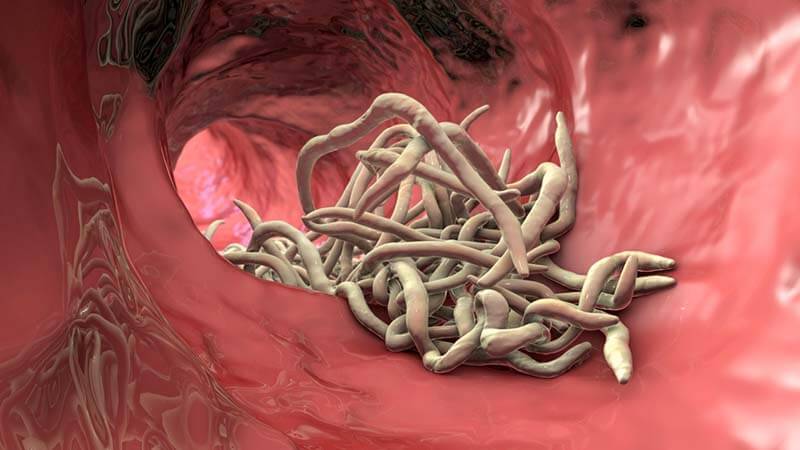
Hemorrhagic gastroenteritis (HGE)
HGE is a canine disease of unknown origin. This disease is often the cause of the appearance of black feces, which are often liquid.
If you have a small young dog that suddenly develops black liquid feces and vomits at the same time, you should take him to the veterinarian immediately to avoid dehydration and even death. This condition is very serious.
Gastroduodenal ulcer
Gastroduodenal ulcer disease consists of ulcers that develop in a dog’s stomach or the first section of the small intestine, called the duodenum. One of the leading causes of this disease is the accidental ingestion of something poisonous into the body. Common culprits are poisonous fungi, pesticides, rodenticides, and chemicals including ethylene glycol.
Along with black feces, a dog with a gastroduodenal ulcer may also suffer from:
vomiting
Weaknesses
Loss of appetite and weight
Rapid heartbeat.
If you suspect your dog has gastroduodenal ulcer disease, you need to take him to the veterinarian as soon as possible for an evaluation.
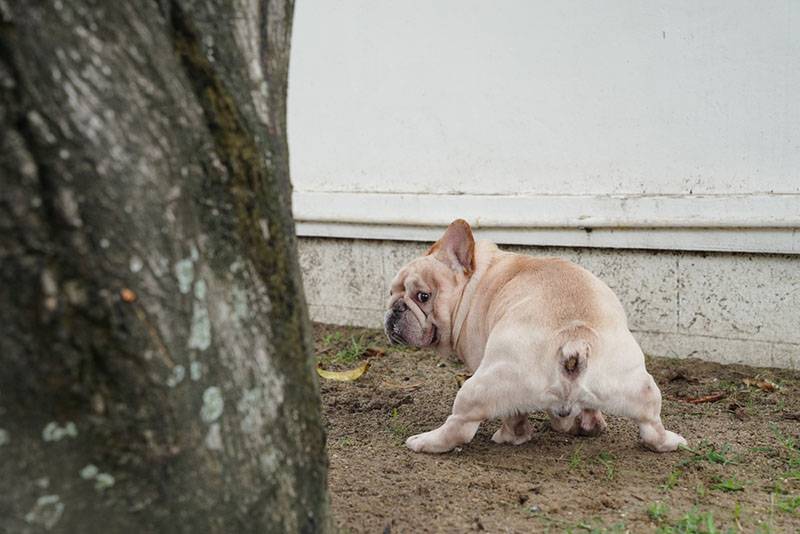
Cancer
Cancer in dogs can cause black feces, as well as many other symptoms, including vomiting, lethargy, loss of appetite, and weight loss. Cancer can be caused by many things, such as exposure to known carcinogens: smoke, pesticides, ultraviolet light.
It is important to contact your veterinarian if your dog’s feces are consistently black and other symptoms are present, such as fatigue or lack of appetite. Doctors will likely run many tests to determine if a dog is suffering from any type of cancer. Some types of cancer can progress quickly.
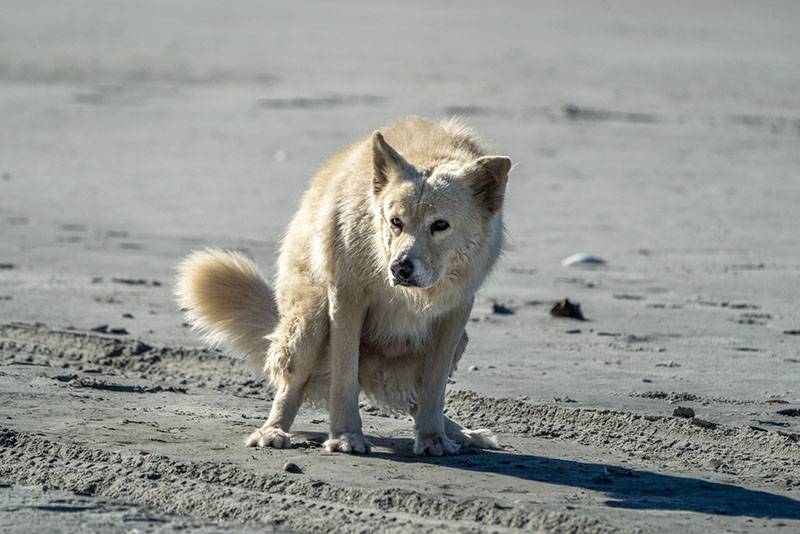
In addition to these main causes, dark stools in a dog can also be caused by other things. Your dog’s feces may be dark if he has swallowed blood while bleeding from his nose or coughing up blood. Feces can also be colored due to the medication the pet is taking.
There are several dog diseases that can cause clotting disorders. This disorder, therefore, causes bleeding and black blood in the stool. Rat poison can cause clotting problems and black blood will appear in the feces. Just remember that black stools are not normal, so it’s best to see your doctor right away.
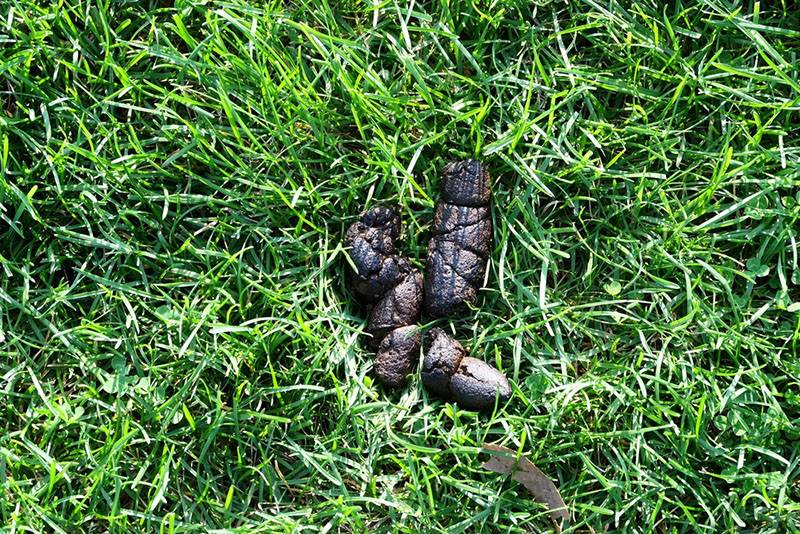
Diagnosing the causes of dark stool in dogs
The veterinarian will need to do a complete and thorough physical examination of the dog at the appointment, which includes taking body temperature to see if there is fever, abdominal palpation for pain, foreign bodies, tumors. Important diagnostic tests will include measuring blood pressure and heart rate.
Because there are many different possible causes, your doctor will likely recommend lab tests and imaging:
General blood analysis
Biochemical profile of blood
Analysis of urine
Stool examination
Abdominal and chest radiographs
Abdominal ultrasound
Research on infectious diseases
Coagulation profile
Endoscopy of the intestines and stomach.
The doctor will ask a lot about changes in diet, behavior and activity level – these are very important in determining the cause of melena.
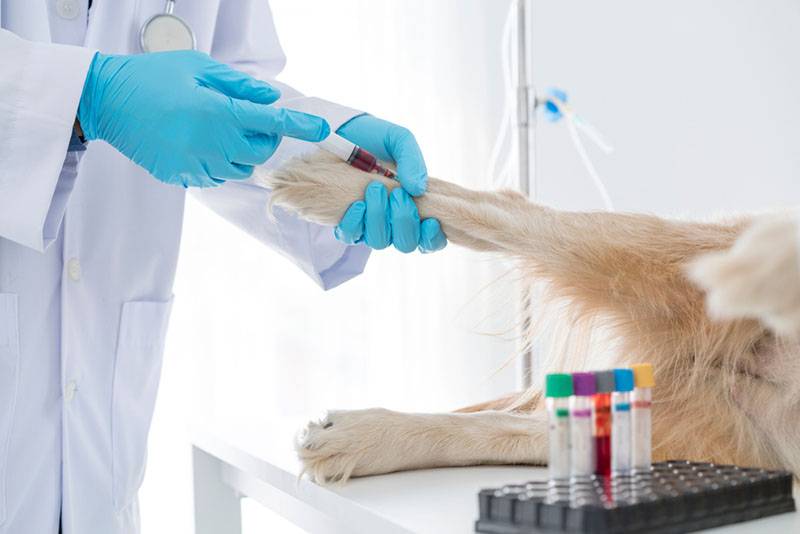
Treatment of pathologies
Treatment will depend on what is causing the dog to have black stools. If the pet’s condition is severe or the doctor can’t determine the cause for a long time, your dog will likely be admitted to the hospital for intravenous fluid therapy, rest, and 24-hour inpatient monitoring.
A blood transfusion may be ordered if there is significant blood loss. The doctor will prescribe medication for your dog to treat the infection or bacteria that causes melena if testing reveals a viral illness.
If the cause of blood in the stool is a foreign body, it will need to be removed.
Oncological diseases will require the control of an oncologist and the appointment of complex treatment – surgery and chemotherapy.
Also be sure to prescribe a diet for easy digestion of food. And other symptomatic drugs – antiemetics, gastroprotectors, antispasmodics, vitamins and an antidote (antidote) for poisoning.
It is important to be sure to give medication as prescribed by the doctor and complete all medication, even if your dog appears to be healthy. The disease may return if you stop too early and become more resistant to the medication your dog was originally on.
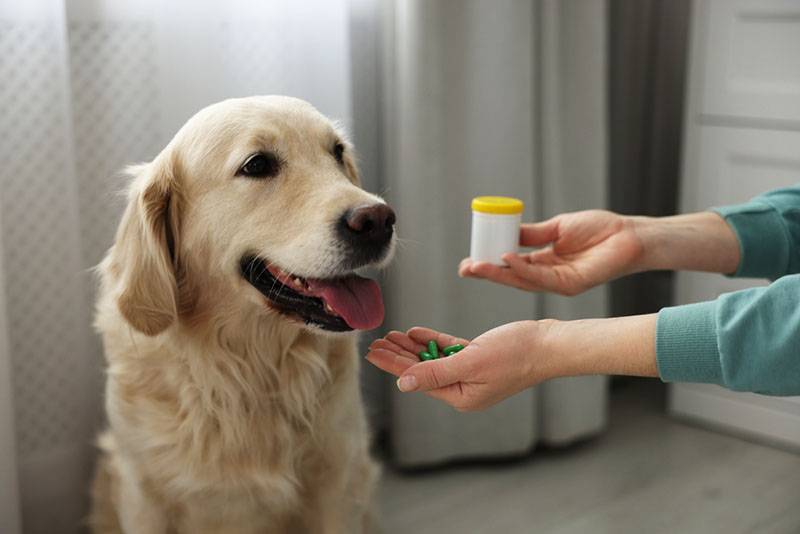
Puppy black poop
The main reason a puppy may have black, hard stools is because they have eaten something that has affected the color of their stools. Puppies often eat unusual things. You can probably spot this with relative ease, especially if your dog usually eats the same foods regularly and something new has been added to the diet lately. Some common causes of black feces are black crayons, charcoal, dark soil, other animal feces.
Another option is that the baby has blood in the stool. The digested blood turns black as it passes through the stomach and intestines, and you may see it darkened in the stool. The consistency of the stool will also change.
If you notice black diarrhea in a puppy instead of hard brown stools, there is a good chance that the puppy has digested blood and the cause needs to be found urgently. For puppies, this can be fatal.

Prevention
In order not to see black poop in a dog, it is enough to follow simple rules of prevention.
Regularly carry out treatments for parasites, external and internal, vaccinate the pet, according to the recommendations of the veterinary community.
Feed your dog properly, follow a monotonous diet and follow the recommendations of a nutritionist. Exclude the eating of foreign objects, “picking up” on the street and other errors in the diet.
Visit the veterinarian regularly and conduct a medical examination of the pet – take blood tests and perform an ultrasound examination of the abdominal cavity.
Black stool in dogs is the main thing
Black dog feces can be caused by many things from internal trauma to cancer.
If the dog has dark-colored diarrhea, an urgent doctor’s appointment and examination is required, as this indicates the development of an acute inflammatory process and bleeding in the gastrointestinal tract.
Diagnosis will require a comprehensive examination – blood tests, abdominal ultrasound, tests for infections and endoscopic examination.
Treatment directly depends on the cause – surgery, hospitalization, antibiotic therapy, blood transfusion, drugs to stimulate the formation of blood cells.
While it’s frustrating to look at your dog’s feces, it’s something you should do every day to keep an eye out for any changes. Familiarize yourself with what animal feces usually look like. Thus, you will quickly notice anything out of the ordinary.
Answers to frequently asked questions
Sources:
Hall Edward J., Williams David A. Gastroenterology in dogs and cats, 2010
N. D. Barinov, I. I. Kalyuzhny, G. G. Shcherbakov, A. V. Korobov, Gastroenterology in Veterinary Medicine, 2007



